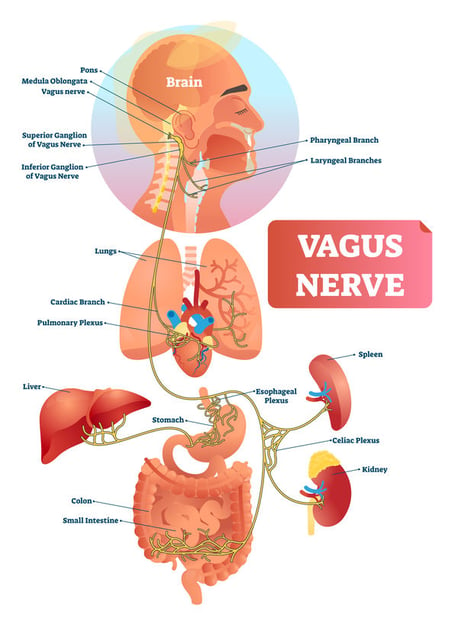
Want a fast, reliable way to overcome stage fright in meetings and presentations? Here's how breathing can help control your fear of public speaking.
Do you have fear of public speaking?
Picture a carousel—a merry-go-round. It's as delightful as when you were a child, with horses and other animals "galloping" up and down while a whirligig tune fills the air. But it's going too fast, isn't it? You find yourself wishing it would slow down. Just enough so that you can enjoy the ride without any concerns . . .
Speech anxiety from meetings, speeches, and presentations can feel like that, can't it? For one thing, the loss of control is downright scary. You look at the live or virtual audience, stage fright hits, and suddenly you can't seem to get a grip. Your breathing itself gets out of hand. Sometimes, in fact, you forget to breathe!
Need a quick and reliable way to relax . . . even if you have just 5 minutes to spare? Learn how in my Free cheat sheet, "How to Calm Your Nerves Before Speaking."
A moment like that will certainly remind you how important good breathing is in public speaking. But the breath is a much more powerful tool than just something that helps activate vocal cords and propel sound waves outward. It's a key mechanism for getting your nervous system to activate a "calming and centering" response, rather than a chaotic one.
In other words to slow the carousel down.

The Vagus: A Nerve You Should Get to Know
Among the miracles of our physical makeup is the vagus nerve—the longest cranial nerve in your body. In fact, "vagus" from the Latin means wandering, and you can see the reason for the name from the illustration above. Among the actions of this many-purposed nerve is that it helps modulate cardiac rhythm. Specifically, exhalation slows down your heart rate thanks to the vagus nerve. And that gives you a reliable way to handle the physiological aspects of speech anxiety.
Here's a relaxation/meditation exercise that can help: my .mp3 recording, "Time to Relax." It's specifically designed to help you become totally relaxed for stressful situations in life.
Dealing with your physical response is vital to help control speaking fear. Here's why (and how) this form of anxiety raises its atavistic head.
First, your mind senses danger. And immediately, your body responds, with an array of physiological tools to help you survive the peril. Your heart starts to race; and your respiration rate speeds up as well. Stress hormones flood your bloodstream, redistributing your blood supply to the muscles you will use to fight or run. The pupils dilate so you can see more; while tasks that can wait like digestion and waste removal cease due to decreased blood supply.
As counterproductive as all of this is for speech giving, it's superb for situations where you must defend yourself or flee to fight another day. Immediately after these pronounced physical reactions take over your body, your mind comes back online to assess the situation. "Oh, there's no danger here," it says: "this is only public speaking."
By now, however, it's too late to turn the powerful "fight or flight response" off. The carousel has morphed into a runaway passenger train, with you in the only seat. If there was ever a time to pull the switch and change tracks, it's now. You desperately need to get off this sympathetic nervous system (SNS) express train, and onto a parasympathetic nervous system (PNS) milk run. This is where our long wandering friend, the vagus nerve, comes in.

The 4-4-6-2 Response: Putting the Brakes On
Leaving out the specifics of transmitters and heart rate variability, here's the simple fact you need to know: when you inhale, your heart rate speeds up slightly, and when you exhale, it slows back down. The slowed response is due to the vagus nerve's action.
Overcome your fear! Get the book named in 2019 as "One of the 100 Best Confidence Books of All Time"—Fearless Speaking. Available as a paperback, and a PDF version.
This, incidentally, is one reason it's hard to get your heart to slow down if you're panicking and breathing rapidly. In that state, you're simply not allowing a normal exhalation to take place. The solution is to make sure you exhale properly. But we're going to go one better and extend the exhalation. Doing so naturally increases the vagus nerve's action in slowing down the racing heart rate—a benign and beneficial effect.
Simply try breathing in the following pattern, with each number representing a silent "beat" in your head: inhale to a count of four, pause for the same count, exhale to a silent count of six, and stop for a two-count. Then repeat. Make it all gentle, and do it for two or three minutes. You should feel your breathing rhythm slow down, as you activate the PNS over the SNS.
And here's my personal recommendation: don't wait until you're about to give a stress-inducing speech or presentation. Do this simple brief exercise frequently. You'll learn a breathing technique to deal with the physical response to anxiety, whether it's related to public speaking or not.
You should follow me on Twitter here.
Fear of speaking? Click below for 50 ways to conquer stage fright!
Gary Genard is an actor, author, and expert in public speaking training and overcoming speaking fear. His company, Boston-based The Genard Method offers live 1:1 Zoom executive coaching and corporate group training worldwide. In 2020 for the seventh consecutive year, Gary has been ranked by Global Gurus as One of The World's Top 30 Communication Professionals. He is the author of the Amazon Best-Seller How to Give a Speech. His second book, Fearless Speaking, was named in 2019 as "One of the 100 Best Confidence Books of All Time." His latest book is The Online Meetings Handbook, now available at The Genard Method and at Amazon. To know more about TGM's services, Contact Gary here.



